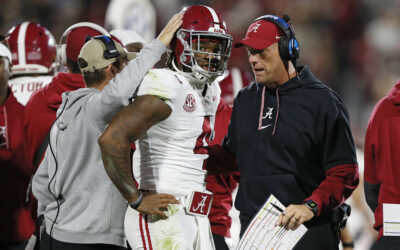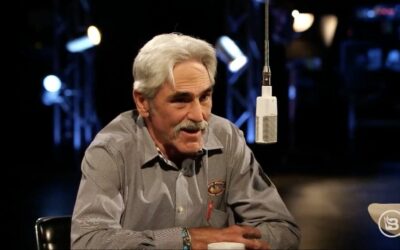Tulsa Raceway Park and Tulsa Speedway Turbocharge Oklahoma’s Economy with Over $83 Million Annual Impact
The Department of Motorsports Industry Research at the United States Motorsports Association (USMA) has released a comprehensive independent study titled “Turbocharging Oklahoma: Discovering the Economic Power of Tulsa Raceway Park and Tulsa Speedway,” which details the substantial economic and socio-economic impacts of these two iconic racing venues on Tulsa and the state of Oklahoma.
Led by Dr.Robert Dunn, Ph.D., the study highlights a remarkable $83.2 million in annual economic output, along with job creation and significant boosts to local businesses and tourism.
Key findings of the report include:
● $83.2 Million in annual economic output generated by the racetracks.
● 547 jobs are supported annually across the local economy.
● $37.6 Million in increased local earnings benefiting area businesses each year.
● 370,000+ annual visitors, significantly contributing to local spending on accommodations, dining, fuel, groceries, shopping, and tourism.
● Economically Impactful Race Teams: Race teams contribute $28 Million annually, traveling an average of 325 miles from 28 different states to participate in races. Over 9,000 race cars were entered into events in 2023.
● Loyal Fan Base: 72% of fans identify as “very enthusiastic” or “absolute fanatics.” Additionally, 29% travel over 100 miles to attend, with fans coming from 29 different states.
The study reveals that Tulsa Raceway Park and Tulsa Speedway consistently provide greater economic contributions and attendance than other major sports and events in the region. For instance, while the Rocklahoma music festival attracts about 60,000 attendees, the two racetracks draw approximately 370,000. The Tulsa Drillers Baseball team hosts 69 events, whereas Tulsa Speedway and Tulsa Raceway Park collectively hold an average of 113 events annually.
In terms of economic impact, the Senior PGA, PGA Championship, and LIV Golf events combined generate around $100 million, while the motorsports facilities contribute $83 million. However, the golf tournaments are typically one-time or sporadic events, whereas the racetracks deliver consistent year-after-year economic activity. Over the next five years, Tulsa Raceway Park and Tulsa Speedway are projected to generate over $415 million in economic impacts, underscoring their significant role in consistently boosting local and state economies.
“Tulsa Raceway Park and Tulsa Speedway are more than just racing facilities; they are vital economic engines for both the city and the state,” stated Dr. Robert Dunn, Ph.D., who led the research modeling and analysis for the USMA. “Our analysis is grounded in comprehensive data collection and careful, conservative modeling, ensuring a reliable foundation for our findings. It is evident that these racetracks significantly contribute to tourism, commerce, and employment, supporting sustained economic growth for Tulsa and the entire state of Oklahoma.”
As a secondary component of the study, the USMA Research Team conducted a hypothetical detailed analysis of Tulsa Raceway Park hosting a National NHRA (National Hot Rod Association) event. The findings indicate that such an event could enhance Tulsa’s economy by an estimated $32.2 million, further highlighting the racetracks’ potential to drive significant economic activity in the region.
“As owners of Tulsa Raceway Park, we’ve always believed in the power of motorsports to do more than just entertain—it drives real economic growth and strengthens the community,” said Todd Martin and Keith Haney. “This study not only affirms what we’ve felt for years but gives us solid data that exceeded our expectations. The impact our venues have on local businesses, tourism, and job creation is tremendous.”
“Moving forward, we look forward to working more closely with local and state tourism, elected officials, business leaders, and the community to find ways we can create even more mutual benefits and growth opportunities for the region.“
Since 1966, Tulsa Raceway Park has been a hub for motorsports enthusiasts, hosting major events and drawing large crowds from across the country. Tulsa Speedway, revitalized in recent years by business leaders Todd Martin and Keith Haney, adds dirt track excitement to the motorsports landscape, further boosting the city’s reputation as a motorsports destination.
The United States Motorsports Association (USMA) is committed to educating the public and fostering strong connections between the motorsports community and government. The USMA conducts research and produces reports on the economic and social benefits of motorsports across the country.
This story was originally published on October 17, 2024.
The post Tulsa Raceway Park and Tulsa Speedway Turbocharge Oklahoma’s Economy with Over $83 Million Annual Impact first appeared on Drag Illustrated.








